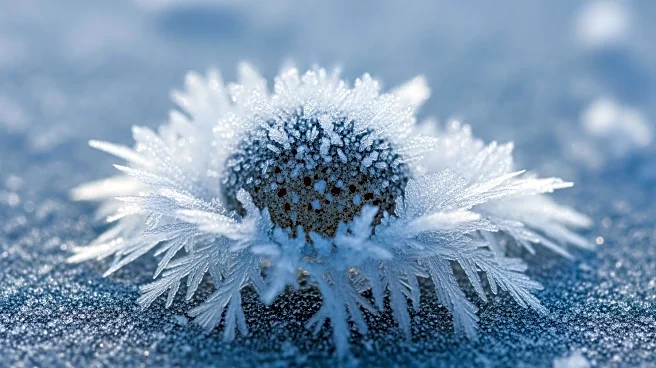What's Happening?
A study conducted on the summit of Roraima-tepui in Venezuela has revealed that amphibians, specifically Oreophrynella quelchii and Pristimantis aureoventris, possess supercooling capacities that are not limited to sub-zero thermal environments. The research,
carried out in a field laboratory, involved experiments on these species, which are native to the high-altitude tepui regions. The study found that these amphibians can maintain activity and thermoregulate in extreme environmental conditions without experiencing sub-zero temperatures. The research highlights the unique adaptations of these species to their harsh habitats, characterized by high solar radiation, strong winds, and heavy rainfall.
Why It's Important?
This study provides valuable insights into the physiological adaptations of amphibians to extreme environments, which could have broader implications for understanding biodiversity and species survival in the face of climate change. The ability of these amphibians to supercool without sub-zero temperatures suggests potential resilience to changing environmental conditions. This research could inform conservation strategies for amphibians, many of which are threatened by habitat loss and climate change. Understanding these adaptations also contributes to the broader field of ecological and evolutionary biology, offering clues about how species might adapt to future environmental challenges.














